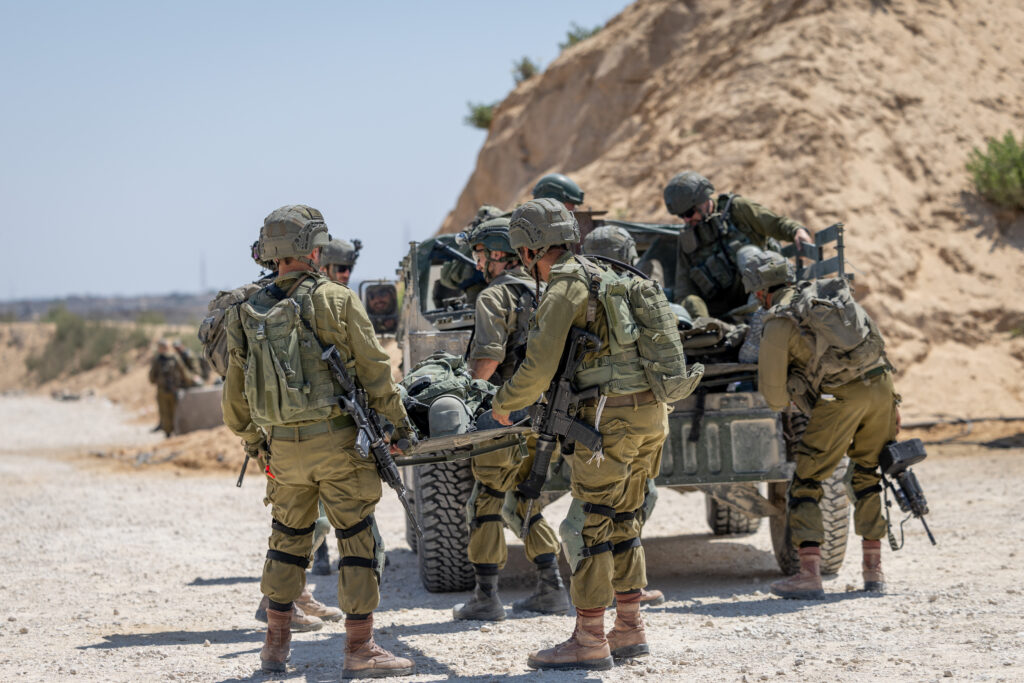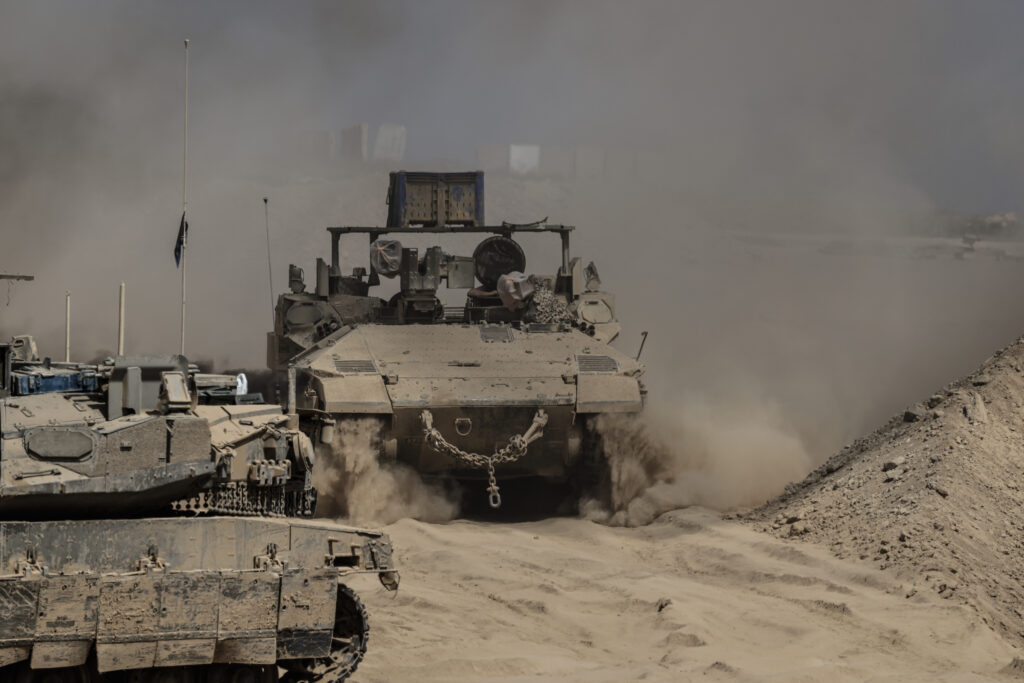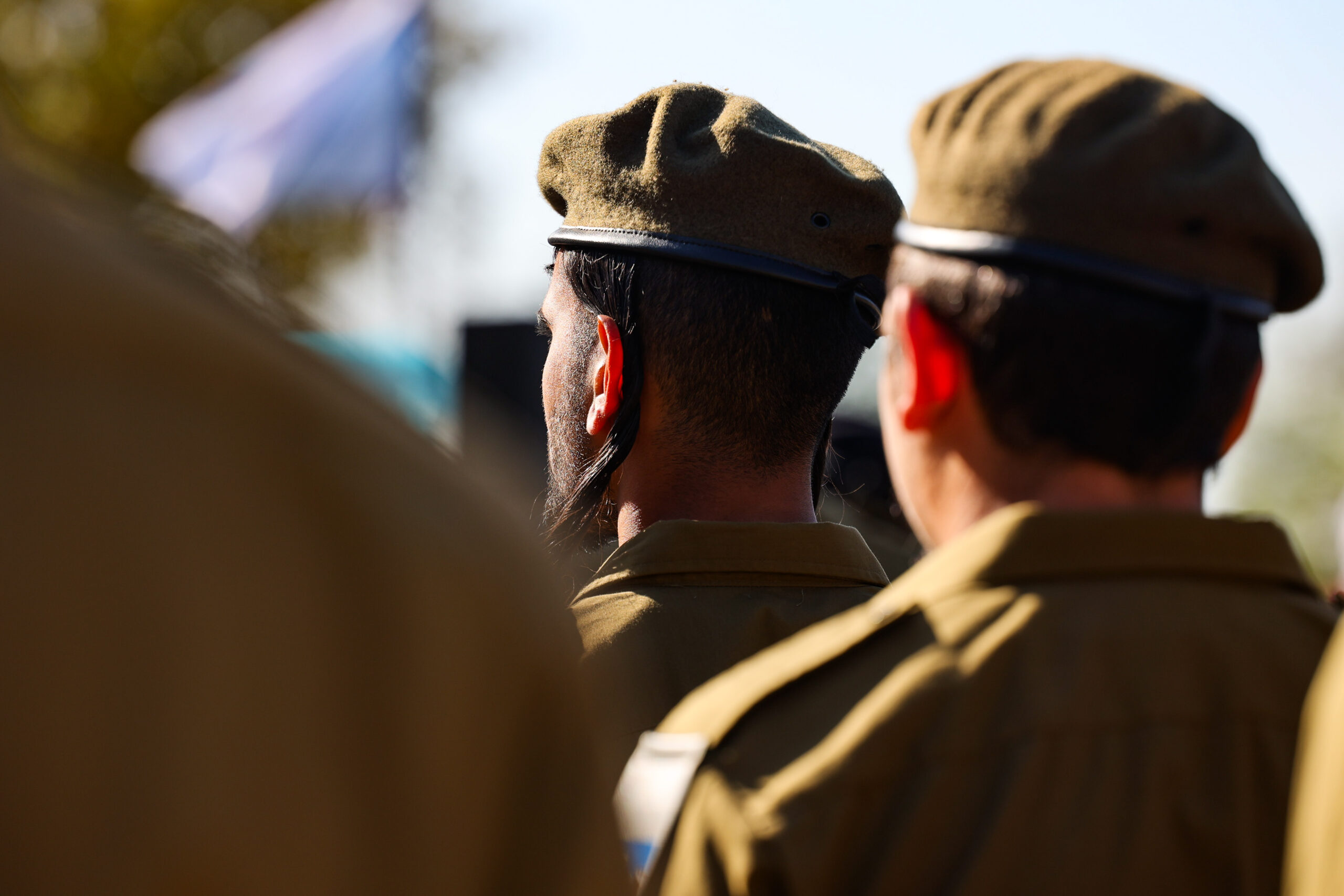\
At 36 years old, I start basic training today. After two weeks of drills and weapons training, I’ll head straight into reserve duty as a combat support soldier.
I’m not a young man anymore. I’m a rabbi with a family, responsibilities, and a life far from any military base. But there’s a soldier standing guard at a lonely outpost near Gaza who needs me to take his place.
Until October 7th, that soldier was probably just like me—a religious man living a quiet life, perhaps teaching in a religious school, running a small business, devoted to his family and his faith. When Hamas attacked Israel, his world turned upside down. He was called up for months of active military service, forced to leave his family, his work, and everything familiar.
His business is failing. His family misses him desperately. And yet, day after day, he stands under the scorching desert sun, scanning the horizon, waiting for someone—anyone—to relieve him.
He may be waiting for a very long time.
The Israeli Defense Forces are short roughly 12,000 soldiers, and that shortage isn’t going away anytime soon. The brutal reality of October 7th shattered any illusions that Israel could survive with a small, technology-focused military. There’s no app or drone that can replace a human being willing to stand guard and defend their homeland.
There are tens of thousands of soldiers like this one, and I can no longer ignore their situation. Not because I’m Israeli—though I am—but because I understand what it means to belong to a people.

More Than Just Myself
Being part of a nation means your identity extends beyond yourself. I’m not just Shmuel Chaim, an individual making individual choices. I’m part of something larger—a people bound together by shared history, values, and responsibility for one another.
This isn’t just philosophy. It’s a spiritual reality that shapes how I see every decision I make.
Jewish teaching holds that God judges not only individuals, but entire communities and even the whole world. Every choice I make ripples outward, affecting not just my own life, but my portion of my community’s fate.
Israel today is far from perfect, but it’s a thriving nation where millions of Jews live meaningful lives—some deeply religious, others less so, but all trying to build something worthwhile in their ancestral homeland. Their struggles are my struggles. Their safety is my responsibility.
This would be true even if Jews had established a homeland somewhere else entirely. But it’s infinitely more significant in Israel—the land that has been central to Jewish identity for over three thousand years.
Why This Land Matters
Israel isn’t just where Jews happen to live today. According to Jewish law and tradition, it’s the only place where Jews can function as a complete national community.
Consider this: Jewish religious law gives the rabbinical courts in Israel—and only in Israel—the authority to set the Jewish calendar for the entire world. No matter how learned or brilliant Jewish scholars might be elsewhere, they cannot establish when Jewish holidays occur. That power belongs exclusively to the religious authorities in Israel.
This isn’t arbitrary: Israel represents the living, breathing center of the Jewish people. Maimonides, the 12th-century Jewish philosopher and legal scholar, wrote that God promised never to completely destroy the Jewish nation—and that promise necessarily includes preserving the Jewish community in Israel. Without Israel, he explained, there could be no Jewish people at all.
Maimonides wrote those words when only a few thousand Jews lived in the land. Today, we are 7.5 million strong.
Supporting and protecting Israel’s Jewish community has always meant ensuring the survival of the Jewish people as a whole. Today, that responsibility falls to people like me—and to that soldier standing guard in the desert, waiting for relief.

My Turn to Serve
So I’m enlisting. At 36, I’ll learn to handle weapons, follow military discipline, and take my place in the defense of my homeland. I’ll stand those long, hot watches at remote outposts. I’ll do my small part in the vast logistical network that keeps a nation secure.
I’m not doing this because I love war or because I think military service is inherently noble. I’m doing it because someone has to, and it’s my turn.
That soldier near Gaza has been carrying more than his share of the burden. He’s given up his livelihood, his time with his family, his comfortable routine—all to protect something larger than himself.
Now it’s time for him to go home to his family and his books and his normal life. It’s time for me to take my place under the desert sun.
This is what belonging to a people really means. Not grand speeches or abstract ideals, but showing up when you’re needed, even when—especially when—it’s inconvenient.
The outpost is waiting. My training starts today.Rabbi Shmuel Chaim Naiman is a foraging guide and certified health counselor. He serves as a spiritual mentor in Yeshivat Lev HaTorah of Ramat Beit Shemesh, where he teaches a daily Healthy Jew class. He recently published a book, Land of Health: Israel’s War for Wellness, and writes a weekly newsletter, Healthy Jew. Learn more at healthyjew.org, and reach out at contact@healthyjew.org.




